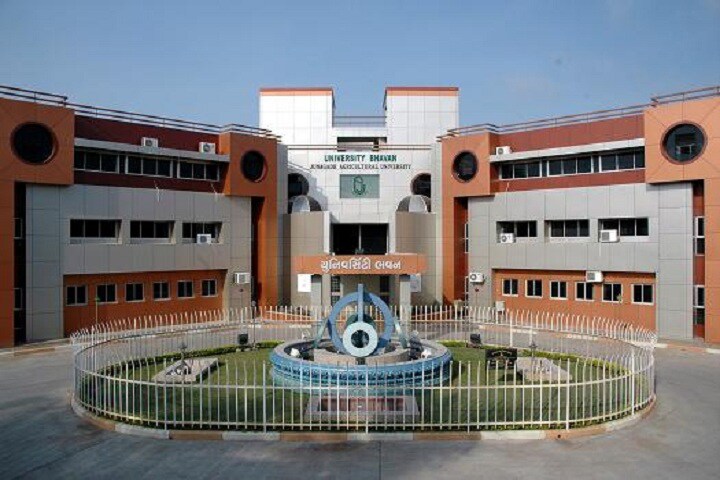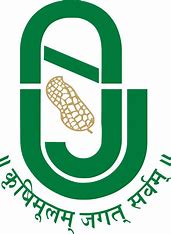
Junagadh Agricultural University (JAU)

Junagadh Agricultural University (JAU)
Address:
Junagadh Agricultural University (JAU)
Junagadh, Gujarat, India
Zip Code: 362001
Introduction to Junagadh Agricultural University (JAU)
Junagadh Agricultural University (JAU), established in 2004, is a prominent agricultural university located in the historic city of Junagadh, Gujarat, India. It is one of the leading educational institutions dedicated to the development of agricultural sciences and allied fields, fostering sustainable agriculture, research, and innovation. JAU’s primary focus is to provide world-class education, research, and extension services in agriculture and related sectors, contributing to the enhancement of agricultural productivity, rural development, and environmental sustainability.
JAU was founded with the mission of improving agricultural practices, enhancing food security, and contributing to the socio-economic development of rural India. The university is known for its cutting-edge research in agriculture, horticulture, veterinary science, and other allied disciplines. With a combination of academic excellence and a strong emphasis on practical training, JAU plays a critical role in transforming agricultural practices and making them more sustainable, efficient, and technology-driven.
Vision and Mission
Vision:
The vision of Junagadh Agricultural University is to become a globally recognized institution in agricultural education, research, and extension, contributing significantly to sustainable agricultural development, rural empowerment, and food security. The university envisions producing highly skilled professionals capable of meeting the challenges of modern agriculture.
Mission:
JAU’s mission is to foster academic excellence, encourage innovation, and promote sustainability in agriculture through the integration of teaching, research, and extension activities. The university strives to impart knowledge, skills, and values to students, empowering them to become leaders in agricultural practices, research, and rural development. JAU also aims to improve the livelihoods of rural communities by promoting sustainable agricultural techniques and farmers’ welfare.
Academic Programs at JAU
JAU offers a range of undergraduate, postgraduate, and doctoral programs in agricultural sciences and related fields. The university’s academic programs are designed to equip students with the theoretical knowledge and practical skills needed to succeed in the dynamic agricultural industry.
Undergraduate Programs
- B.Sc. (Agriculture):
The Bachelor of Science in Agriculture is a four-year program that focuses on various aspects of agricultural science, including crop production, soil management, pest control, and agricultural economics. The program provides students with a comprehensive understanding of modern agricultural practices and equips them with the skills needed to address contemporary agricultural challenges. - B.Tech. (Agriculture Engineering):
The B.Tech. in Agricultural Engineering is an undergraduate program that focuses on the application of engineering principles to agricultural practices. Students are trained in areas such as irrigation systems, farm machinery, post-harvest technology, and agricultural structures. - B.V.Sc. (Veterinary Science):
This program is designed for students interested in veterinary science and animal husbandry. The curriculum covers various aspects of animal health, disease prevention, veterinary surgery, and livestock management. - B.Sc. (Horticulture):
The B.Sc. in Horticulture program focuses on the science and technology of growing fruits, vegetables, flowers, and other plants. Students learn about crop cultivation, post-harvest management, and environmental sustainability.
Postgraduate Programs
- M.Sc. (Agriculture):
The Master of Science in Agriculture offers advanced studies in fields such as crop science, plant pathology, soil science, entomology, and agricultural economics. The program is designed to provide students with specialized knowledge in their chosen area of interest. - M.Tech. (Agricultural Engineering):
The M.Tech. program in Agricultural Engineering emphasizes research and development in agricultural technology. Students gain advanced skills in the design and optimization of agricultural systems, including irrigation, mechanization, and farm management. - M.V.Sc. (Veterinary Science):
The M.V.Sc. program offers specialization in various areas of veterinary science, including veterinary microbiology, veterinary pathology, and animal reproduction. It is designed for students who wish to advance their knowledge in animal health and management. - M.Sc. (Horticulture):
This program provides students with a deeper understanding of horticultural crops, plant breeding, production technology, and post-harvest technology. The course aims to prepare students for careers in horticulture, research, and extension services.
Doctoral Programs (Ph.D.)
JAU offers Ph.D. programs in various agricultural disciplines. These programs are research-oriented, with students required to complete original research in their area of specialization. The Ph.D. programs are available in fields such as:
- Agronomy
- Soil Science
- Horticulture
- Entomology
- Agricultural Economics
- Veterinary Science
These programs are designed for students who aspire to contribute to the advancement of agricultural research and innovation.
Research and Innovation at JAU
Research is at the core of Junagadh Agricultural University’s mission. The university conducts cutting-edge research in various domains of agriculture and allied sciences, focusing on sustainable farming practices, climate-resilient crops, soil health, pest management, and post-harvest technology. JAU aims to bridge the gap between traditional farming methods and modern agricultural technologies.
Key Research Areas
- Crop Improvement and Biotechnology:
JAU conducts research to develop high-yielding, pest-resistant, and climate-resilient crop varieties. The university is involved in plant breeding programs that aim to improve the genetic quality of crops, enhancing both productivity and nutritional content. - Soil Health and Fertilization:
Research on soil management and fertility is one of JAU’s key focus areas. The university’s research efforts are directed toward improving soil health, optimizing fertilization techniques, and reducing the environmental impact of chemical fertilizers. - Integrated Pest Management (IPM):
JAU is actively involved in researching sustainable pest management practices that minimize the use of harmful chemicals. The university’s research on biological control methods and organic farming is helping reduce dependency on pesticides and promote environmentally friendly farming techniques. - Water Management and Irrigation:
Efficient use of water resources is crucial for sustainable agriculture. JAU’s research in water management focuses on improving irrigation techniques, reducing water wastage, and promoting rainwater harvesting and drip irrigation systems. - Livestock and Dairy Research:
The university also engages in research related to animal husbandry, dairy production, and veterinary science. This research aims to improve the health and productivity of livestock, ensuring better management of farm animals and boosting the dairy sector.
Extension Services
JAU extends its research findings and knowledge to farmers through various extension services. The university conducts training programs, workshops, and field demonstrations aimed at empowering farmers with the latest knowledge and technologies. These extension activities help improve farming practices and contribute to rural development.
Campus Facilities and Infrastructure
The JAU campus is equipped with modern facilities to support education, research, and overall student development. Some of the key facilities include:
- Agricultural Research Farms: JAU has dedicated research farms where students and faculty conduct experiments and trials related to crop cultivation, pest control, and soil management.
- State-of-the-Art Laboratories: The university has well-equipped laboratories for soil science, plant pathology, entomology, biotechnology, and veterinary science research.
- Library: The JAU library has a comprehensive collection of books, journals, and e-resources related to agricultural sciences and allied fields.
- Hostels: The university provides hostel facilities for both male and female students, offering a safe and comfortable living environment.
- Sports Facilities: JAU promotes sports and physical fitness among students through its sports infrastructure, including outdoor games and indoor sports facilities.
- Cafeteria: The campus has a cafeteria that offers nutritious and hygienic food options for students and staff.
Student Support and Development
JAU is committed to the holistic development of its students. The university offers various support services to enhance students’ academic, personal, and professional growth:
- Career Services: JAU’s career services department provides students with career counseling, placement assistance, and job opportunities in the agricultural sector.
- Student Clubs and Activities: Students at JAU participate in a variety of extracurricular activities, including agricultural exhibitions, cultural events, and sports competitions.
- Internships and Fieldwork: The university emphasizes hands-on experience, providing students with opportunities to intern with agricultural industries, government agencies, and research institutions.
Conclusion
Junagadh Agricultural University (JAU) is a leading institution dedicated to advancing the field of agricultural education and research. With a strong focus on sustainability, innovation, and practical training, JAU is helping shape the future of agriculture in India. The university’s academic programs, cutting-edge research, and extension services are playing a critical role in enhancing agricultural productivity, improving rural livelihoods, and ensuring food security. Through its commitment to excellence, JAU is not only making significant contributions to the agricultural sector but also empowering students to become leaders in the global agricultural community.
Courses/Programs
| Serial# | Title | Estimated Cost | Program type |
|---|
